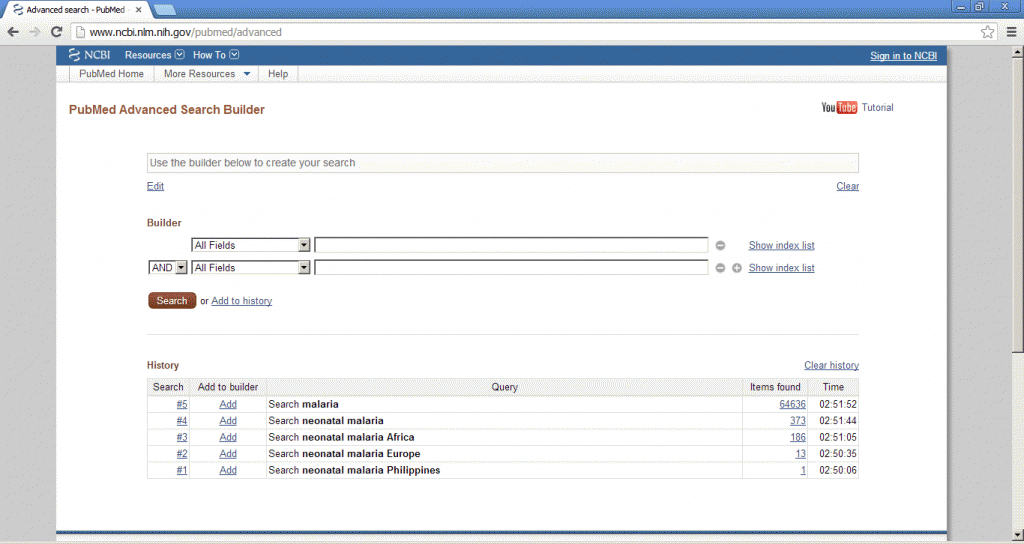Too broad, too narrow, or o.k.?
Is my topic too broad, too narrow, or o.k.?
If your thesis is going to be solely based on published literature you can quickly establish whether your research question appears to be too broad or too narrow. Perform a free-text search in a specific database such as Pubmed to see how many results you receive.
Consider that you are thinking about writing about something related to neonatal malaria. If you perform the following searches in the biomedical search engine Pubmed you will quickly get an idea of whether the topic is too broad or too narrow.
- neonatal malaria – perhaps too broad > 350 results
- neonatal malaria Africa – OK approx 200 results
- neonatal malaria Europe – perhaps too narrow <20 results
- neonatal malaria Philippines – too narrow < 5 results
In general if your search is yielding less than 20 results your topic may be too narrow for a literature study or it may be an indication that your research is truly novel and requires that your thesis is based on empirical data. But before you draw this conclusion you should try to rethink your topic, for example by searching Google or Google Scholar. You can also try using more general keywords, synonyms, similar expressions and related information. Also remember to ask your supervisor, who probably has a sense of whether anyone has dealt with your topic before.
If your search yields more than 500 results your research question is probably too broad for your thesis as lots have already been written on your topic and you may need to modify your research by narrowing your search criteria. If you have approximately 200-300 results you will also need to narrow your research question, but it can be a good idea to read through the abstracts of many more articles than you will actually end up using in your thesis.
TIP!
Use Pubmed or another subject database to perform this kind of search, as Google Scholar’s results give much higher numbers and thus can’t be used for this purpose.
Learn how to perform well-structured systematic searches in the module Literature Search.





